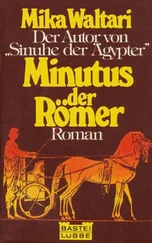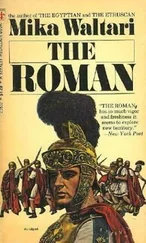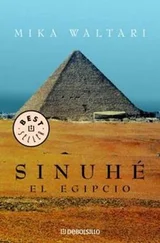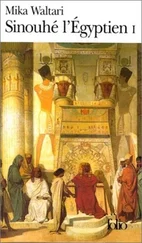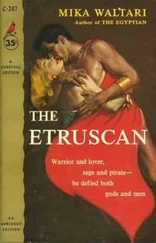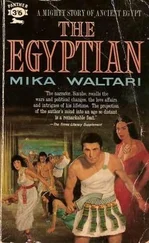When the old teacher Ibrahim ben-Adam observed my genuine desire for knowledge he conceived a liking for me and expounded the Koran to the best of his ability, and often I stayed on after the others had left until late in the evening. He was very devout and never wearied of reading the sacred writings. It was from him I learned that Islam has room in it for many paths whose followers dispute among themselves. But these questions did not disturb my peace of mind, for I studied the Koran with intellectual detachment, and solely from a desire for knowledge. I soon perceived that Christians had little to be proud of in their supposedly superior religion, for dogmatic disputes, sanctimoniousness, hypocrisy, and the nonobservance of fasts were features common to both persuasions.
During the day I helped Abu el-Kasim to mix drugs and grind kohl to a fine powder for eye black. I also prepared a dye of indigo and henna, which gives a blue-black tinge to women’s hair. By kneading indigo leaves to a stiff dough we obtained a substance that women used to color their eyebrows dark blue; and Abu el-Kasim told me that the fine ladies of Baghdad often shaved off the eyebrows that Allah had given them, to replace them by penciled blue lines.
But the most important of Abu el-Kasim’s wares were the leaves of henna that he obtained from Morocco, where they were gathered three times a year. Women moistened these and kneaded them to a greenish paste which they rubbed into their faces to freshen and rejuvenate their complexions; elderly women could not live without it. Henna was also used in the preparation of a dye for nails, hands, and feet. Abu el-Kasim had his own methods of making this, which enabled him to sell it at prices that varied according to the means of the customer.
He taught me to knead a little lemon juice and alum into the henna paste, and so produce an orange-colored mixture for coloring the nails. He would mix some of it with rose water or essence of violets, put it into different pots under different names and price it according to the lure of those names. In this way he could charge many times the price of the original commodity. Vain men dyed their beards with henna, and fair-haired women could use it to turn their hair fiery red in the Venetian manner.
Other preparations he made entirely himself, including the burning “paradise ointment,” which he declared could restore virginity to a prostitute, though she had visited all the ports of Africa and reached the age of forty. When I rebuked Abu for his heartlessness in robbing the poor by selling them worthless goods he looked at me with his monkey eyes and answered gravely, “Michael el-Hakim, you mustn’t blame me, for in selling these things I sell much more than their ingredients. I sell dreams, and the poor have greater need of dreams than the rich and fortunate. To aging women I sell youth and self- confidence. Besides, you’ll have noticed that I sometimes give away henna and rose water for some poor girl’s wedding, and so acquire merit. Don’t reproach me for selling dreams to others, though I’ve lost my own.”
I give no opinion as to the rights or wrongs of this, and as to whether it is better to live unhappy in the truth or happy in a lie. However it may be, I helped Abu el-Kasim in every way I could and was flattered when he began to call me el-Hakim, the physician. It came about when he was seeking an Arabic name for me. Rearranging the letters of “Michael” or “Mikhael,” he produced to his own surprise the words “el-Hakim.”
“There’s an omen indeed!” he cried. “As Michael the angel you did Sinan a service by inducing him to seek guidance in the holy book;
now as el-Hakim the physician you shall serve me. May the conjunction be a fortunate one for both of us.”
I first saw Sultan Selim ben-Hafs one Friday as he came riding down the steep street from the kasbah to the noon service in the mosque. He was attended by a flock of richly dressed slaves, and by a company of bowmen who, with arrows ready fitted to the bowstrings, closely scrutinized the lattice windows and flat roofs of the houses. In the forecourt of the mosque Selim made a disdainful gesture, and a sackful of square silver coins was flung to the poor. Within, having carelessly rattled off the prayers, he sat cross legged on his throne and dozed while passages from the Koran were read aloud. Thus I had a fair opportunity of watching him and studying his face, and I cannot say that I was attracted, for it was ravaged by vice and his drooling mouth hung open. He was middle aged; his face and his dark beard gleamed with rare ointments, and his bloodshot eyes framed in heavy, puffy lids were as lifeless as his mouth. Abu el-Kasim told me he ate opium. Afterward, on his return to the palace, Selim paused at the entrance to witness two executions and the flogging of some young boys who were bound to posts on either side of the gate. He let the whipping continue until blood was pouring down their backs, while he sat slumped in his saddle with a hanging lip, dully looking on. If the Hafsids had ruled Algiers for three hundred years, I thought, it was at least one hundred years too long.
I soon came to love Algiers-the street where I lived, and the people who talked to me. This foreign city, with the strange smells and colors, the charcoal braziers, the fruit trees, and the many ships in the harbor, was like a city from some story book. Each day I ate mutton and rich broth; often Abu el-Kasim with a sigh would loosen his purse strings and give me a few square silver coins, and I would go to the market to buy plump ptarmigan, which Giulia afterward dressed with lavish seasoning.
For Giulia had gradually become reconciled to her lot. Abu el-Kasim pleased her by taking her to the bazaar and buying her beautifully wrought bracelets and anklets of silver. To my annoyance she dyed her fair hair red. Her nails, the palms of her hands, and her feet up to the anklebones were always orange-red, and she also painted her eyelids and eyebrows after the fashion of Algerian women. To her credit be it said that she soon wearied of our housekeeping and took it into her own hands, inducing Abu el-Kasim to repair the house and even demanding a covered pool in the courtyard, so that he was forced to pay a large sum for the right to pipe water from the city water tower. Giulia in short claimed the same amenities as our neighbors, until Abu el-Kasim tore his beard and wrung his hands, and in moments of desperation ran out into the street to call everyone to witness how the abominable soothsayer was plunging him into ruin.
The neighbors stroked their beards and gloated. Some said, “Abu el-Kasim has grown rich,” and others said, “What a joyful day it will be when next Selim ben-Hafs’s taxgatherer visits our street!” Only the most compassionate remarked, “Abu el-Kasim has clearly gone out of his mind. It would be a kindness to him and pleasing to Allah to carry him to the madhouse and have the evil spirit whipped from his body.”
I was not at all surprised at these remarks, for now and then Andy in a howling fury would chase the agile Abu round the court, until he fled over the wall and hid in the cess pit. For Abu el-Kasim purposely teased and goaded Andy every time he was beaten on the wrestling ground behind the mosque. On such days Andy would be in a surly humor, and if on top of this Abu waved a wine flask in front of his nose, inviting him to take a pull at it and gain a little vigor, it was enough, and I was often afraid that Andy would knock Abu to pieces. But when enough interested onlookers had gathered in the yard and Andy’s fury had somewhat abated, Abu el-Kasim would creep out of the drain, smelling very evilly, and approach Andy with an ingratiating air, to feel his calf muscles and assure the neighbors that Andy would yet bring him in a fortune by wrestling.
Читать дальше

